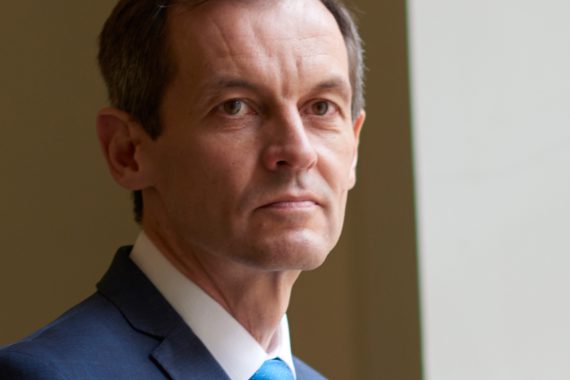BMA writes to Hunt warning GPs will close lists ‘as final recourse’

The BMA has written to health secretary Jeremy Hunt warning that GPs would be willing to close their lists en masse unless the Government tackles the ’urgent challenges which have led us to this position’.
GP Committee chair Dr Richard Vautrey told the health secretary that the BMA is ‘deeply concerned’ that practices are reaching the point ’where closing their lists seems the only viable way to ensure patient safety’.
He called for a meeting with the health secretary to discuss ‘the urgent challenges which have led us to this position.’
The letter is in response to the survey conducted by the GPC, which found that 54% of practices said they would consider temporarily suspending patient registration to concentrate of delivering safe care to those already on their list. Permanent list closure would be welcomed by 44% of GPs.
Pulse reported that, following the survey, the GPC will consider balloting GPs over closing their lists en masse because of workload pressures.
Dr Vautrey told Mr Hunt: ‘This [survey] clearly demonstrates the huge pressures facing general practice. GPs would only consider such action as a final recourse. We have, unfortunately, seen this borne out with recent announcements of practices having to close their lists.
’We are deeply concerned that this survey demonstrates practices are reaching the point where closing their lists seems the only viable way to ensure patient safety.’
He said the indemnity crisis needed a solution, along with creating ‘a sustainable expansion’ of the GP and community workforce, supporting practice development and sustainability and funding frontline services adequately.
Despite the ambitions set out in the GP Forward View, there are fewer GPs now than in 2015, Dr Vautrey said. ‘It is crucial that the Government tackles the issue of recruitment and retention within general practice as it is fundamental to enabling practices to meet the growing needs of their patients.’
He detailed how ‘prohibitive indemnity costs’ were adding to the ‘severe financial difficulties’ in primary care and exacerbating the workforce crisis.
The rising cost can contribute to GPs cutting their hours, limiting their ability to work in urgent care settings or act as a disincentive to work beyond retirement age.
He called for a new system that is comparable and equitable with secondary care to remove ‘this huge burden’ from GPs.
Dr Vautrey urged Mr Hunt: ’What general practice needs is an immediate, long-term solution for all GPs and their staff working in the NHS.’
He said funding was down to 7.9% from 9.6% in 2005/6.
‘With unprecedented patient demand, a recruitment and retention crisis, huge workforce shortfalls and major practice premises problems, it is no wonder that GPs are having to consider action such as suspending their patients lists, ’ he warned Mr Hunt.
A DH spokesperson said: ’GPs are a vital part of the NHS and we understand the pressures they face – that’s why we’ve committed an extra £2.4bn of funding by 2020/21 and are working closely with the sector to improve patient care and services.
’We would urge the BMA to consider the impact of list closures and the detrimental effect it could have on communities across the country.’
What happens next
The GPC is set to take the results of its survey into negotiations with the Government. It is also expected to update its Urgent Prescription document – its list of demands for general practice – which it will relay to NHS managers.
GPC England will meet in November and decide whether the Government’s response to its demands has been sufficient. GPC chair Dr Richard Vautrey said ‘all options are on the table’.
For any ballot result to be legal, a turnout of at least 50% will be needed, with the majority of those voting in favour of action. Recent changes to trade union law also specify the support of at least 40% of all members entitled to vote (ie, on an 80% turnout, a 51% vote would be acceptable).
There have been indications of how such action would be received, with an unusually measured Daily Mail front page saying GPs were considering taking the ‘drastic’ measures because of the pressure they were under.
But there is the possibility many practices will unilaterally close their lists anyway on the basis of GPC advice they have already received.
The idea of a mass closing of lists was first suggested by Pulse editor Nigel Praities.
Pulse October survey
Take our July 2025 survey to potentially win £1.000 worth of tokens










